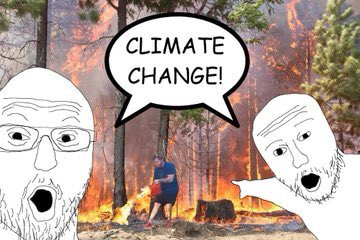
The failures of so-called peer review in climate science journals has been given insufficient attention. But an article in the recent edition of the American Journal of Economics and Sociology, “Climate Denialism,” by Tinus Pulles, highlights this problem. Scientists whose findings differ from the government-approved narrative have always had great difficulty getting their findings into peer reviewed journals. This is because of the flood of government research money in academic “science.”
Recently a petroleum scientist named Andy May penned an article in an academic journal laying out the basis for skepticism of the government’s catastrophic-global-warming-by-manmade-CO2 narrative. May’s article was quickly attacked by a government-funded professor, Tinus Pulles. But although May identified “20 clearly false statements and three additional problematic statements in Tinus Pulles’ article, the editors of the journal failed to address the misstatements or even publish May’s list.
May writes:
What is puzzling is I was asked to peer review this paper months ago and I sent in the review in October. Nearly all the errors you will see in the list below were pointed out then, yet they remain in the paper. To nearly everyone familiar with climate science literature and our paper, these errors are obvious. I find it more than a bit alarming that even the grammatical errors I pointed out in the paper last October are still in it. Why such a flawed paper was published is a mystery. Peer review is not working as intended.
Pulles appears to believe that dangerous human-caused climate change is an undisputed fact. He also repeatedly conflates “climate change” with “dangerous man-made climate change.” Human-caused global climate change has never been observed, either directly or statistically, only modeled. The paper is critical of our paper from earlier in the year (May & Crok, 2024), but that paper makes it clear that human-caused climate change is not an existential threat and the incidence and magnitude of recent extreme weather events have not exceeded expected natural variability as shown in the recent IPCC AR6 WGI report on page 1856 and elsewhere.

